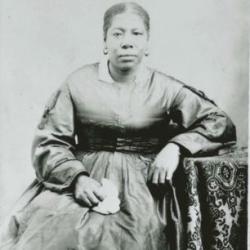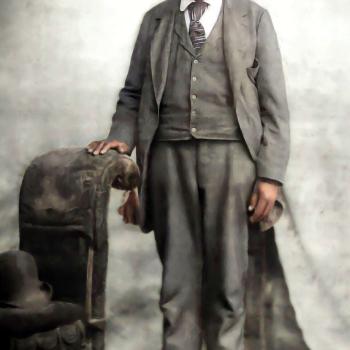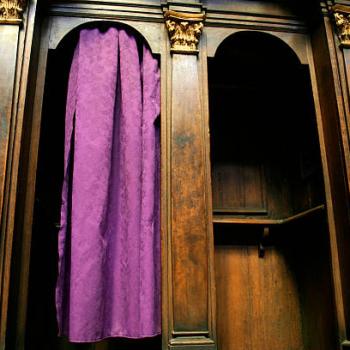[Editor’s note: I still gets dozens of hits on this page daily, so if you’re a visitor and you like what you read, welcome! If you’d like to know more, check out the short version here. Thanks!]
*****
Brennan Manning died last week. Yet another in a strikingly long list of notable deaths over the span of just a few short weeks here in April, including Edith Schaeffer, Margaret Thatcher, and, most recently, George Beverly Shea (may their righteous memories be a blessing). The news of Manning’s death prompted me to do a bit of digging on exactly what kind of gospel he taught. I knew that The Ragamuffin Gospel was a profound influence on one of my favorite songwriters, Rich Mullins, whose Ragamuffin Band was named after Manning’s book. But I also knew that he’s been quoted, claimed and cited as an inspiration by a lot of openly liberal Christians (as just one example, Christian worship leader Carlos Whittaker has a blog entitled Ragamuffin Soul). The fact that so many different people thought he was so wonderful left me a little confused, and curious.
After my research, I could only sigh and echo Master Yoda: “Expected this is. And unfortunate.”
Briefly, Brennan Manning grew up in a broken home but converted to Christianity as an adult, entering the Holy Orders in the 1960s. In 1982, he left the priesthood to get married. However, this marriage sadly ended in divorce in 2000 because of his alcoholism, which was a lifelong struggle for him from his teen years on up. But even while his marriage was deteriorating through regular relapses, Manning was developing what can only be described as a massive cult following among evangelical Christians, largely on the strength of his 1990 book The Ragamuffin Gospel. It spread like wildfire among the CCM community, receiving endorsements from prominent names like Rich Mullins and Michael W. Smith. Manning went on speaking tours and continued to write more books through the 90s. But by the time he got divorced, he had developed “wet brain” syndrome, a debilitating alcoholic’s illness that gradually robs one of mobility and independence. He required live-in care for the last years of his life. His last book, a memoir entitled All is Grace, read almost like a last confession, a chronicle of regret that juxtaposed the depths of his failure with the wonder of God’s forgiveness.
I’m not going to go so far as to say that Manning taught outright heresy in every book he wrote. He himself was quoted as denying that he believed in universalism, of which he’d been accused. And clearly there was enough gospel truth in his work to attract folks I respect to his work, like Michael Card and Max Lucado. Nevertheless, when you step back and look at the whole picture he painted, you can see how easy it is to abuse his re-packaging of the gospel. In fact, you can see how it led to some of the false positions Manning himself took on theology and morality later in life.
At times, Manning’s rhetoric was very similar to somebody like Tony Campolo. Politically, he tipped his hand even as he fancied himself to be above both parties. I refer my readers to this blog post quoting a long section of Manning’s on the life issue, which is hopelessly muddled and badly confused. To explain just how badly confused it is would require a post unto itself, so I’ll let anyone who feels like it have a go in the comments section. I would also refer them to this account from Andy Comiskey of Exodus International, who tried to get a clear answer from Manning on homosexuality after reading passages in his books which criticized “homophobia” without taking a clear stance on the sin itself. Manning was very dismissive of these questions but, when pressed, “advocated for committed homosexual couples.” That tells you all you need to know on that point.
Manning’s theology was a strange cocktail of gospel truth, gospel half-truth, Eastern mysticism, and Jungian psychology. The central theme of all his work was that God is crazy (or, in Manning’s words, “kooky”) about us and the root of all our sin is our failure to believe how crazy he is about us. Clearly, this is a one-sided view of the gospel. He placed a great deal of emphasis on self-esteem and the importance of learning to like oneself (there’s the Jungian part), which led him to view repentance as something which should be done “quickly” and moved on from. He promulgated the notion that meditating extensively on one’s own sin is a form of arrogance, and more time should be spent focusing on how loved and accepted we are. Again, not the whole truth. Here is just one disconcerting quote from The Ragamuffin Gospel:
If we are open, we rarely resort to either-or, either creation or evolution, liberty or law, sacred or secular, Beethoven or Madonna. We focus on both-and, fully aware that God’s truth cannot be imprisoned in a small definition. … But the open mind realizes that reality, truth, and Jesus Christ are incredibly open-ended.
We can see seeds of the emergent movement in quotes like this. Here’s another quote from a different book that sounds uncomfortably close to something Rob Bell might say: “[T]he god whose moods alternate between graciousness and fierce anger … the god who exacts the last drop of blood from his Son so that his just anger, evoked by sin, may be appeased, is not the God revealed by and in Jesus Christ. And if he is not the God of Jesus, he does not exist.” Meanwhile, Manning accused right-wing fundamentalists of “bibliolatry,” a term of his own coining.
So, despite the good that many folks found in Manning’s work, I believe there were enough red flags that it should have been taken with a few more grains of salt than it was. One can also trace a direct line from this watered-down gospel to his ultimately weak stance on moral issues like homosexuality. As Andy Comiskey aptly puts it, “Grace without the clear and authoritative truth of Scripture is deadly. The goalposts change. We lose the revelation of God’s will for our humanity. We are left instead to construct an identity based upon our experience of reality. ‘I feel gay; therefore, I am gay; therefore, God blesses my gayness.’ ” Man-centeredness inevitably leads to a form of sin-centeredness.
Manning’s legacy is also unfortunate in this respect: It provides fuel for the fire of people who would disregard Paul’s clear teaching that those in positions of leadership within the church must be “above reproach.” Instead, they believe the opposite—that if anything, being a dysfunctional wreck (somehow) makes you better qualified to teach and lead others. Because it’s better to be a dysfunctional wreck than a self-righteous Pharisee, and anyway (smirk), we’re all “dysfunctional” so look who’s talking. I like to take the Peter Falk approach to this attitude: Yes, you’re very smart. Shut up.
In all honesty, I do sympathize with Manning’s state. When I read his last confession, I see a broken man who got tragically caught in a downward spiral that was not entirely within his control. I also see genuine pain and remorse over his lies and his sinfulness. Nevertheless, I believe that even addiction cannot completely take away our own free will. It was still his choice to lie about his condition—to his wife and to the people who were supposed to keep him accountable. It was still his choice to buy the alcohol, thereby misusing the money he earned from selling his books and collecting speaker fees. To Manning’s credit, he wrote at the end of his life that he “honestly didn’t know” how valuable his work from that time had been. Perhaps he sensed, subconsciously, an undercutting effect from his own sin. It’s clear that he was not physically or psychologically equipped to handle the responsibility of his success. He admitted frankly that he abused the time spent away from his marriage, deliberately over-booking himself so he could hide from his wife and drink more. He summarized his life journey thus:
[A]nything but a straight shot, more like a crooked path filled with thorns and crows and vodka. Prone to wander? You bet. I’ve been a priest, then an ex-priest. Husband, then ex-husband. Amazed crowds one night and lied to friends the next. Drunk for years, sober for a season, then drunk again.… I’ve been John the Beloved, Peter the coward, and Thomas the doubter all before the waitress brought the check. I’ve shattered every one of the Ten Commandments six times Tuesday. And if you believe that last sentence was for dramatic effect, it wasn’t.
This is not a man who deserved a place as a revered Christian leader or mentor. This is a man who should never have had a platform in the first place.
And yet, people are still revering him as a leader and a mentor. And that’s a problem, because once you accept that people like Brennan can be leaders, it changes your whole perspective on ministry, pastoring, mentoring and other positions of responsibility in the church. It leads to a lowering of standards in the name of “grace” which ultimately does more harm than good. By the same logic, one could argue that a pastor who struggles with sexual addiction but feels bad about it could keep pastoring his church as long as he didn’t pretend to “have it all together” and admitted it was wrong. This is obviously a disastrous conclusion.
Ultimately, we should look on the tragedy of Brennan Manning’s life story with no small measure of pity and compassion. At the same time, we should not hold it up as an example to be imitated. To have pity for the man is not the same thing as revering him. To point out that the Holy Spirit still worked through him for good merely emphasizes the truth that God can work through many things and many people. And to acknowledge that God’s grace is indeed amazing is not enough by itself unless we also acknowledge the fullness of God’s truth.
















